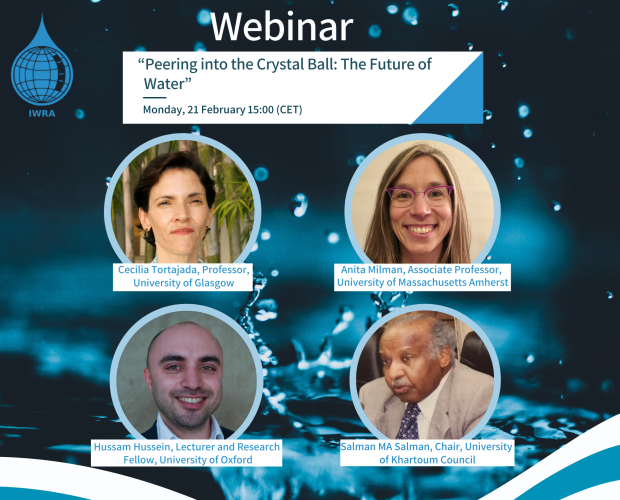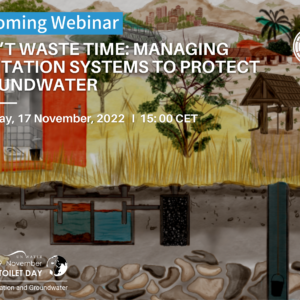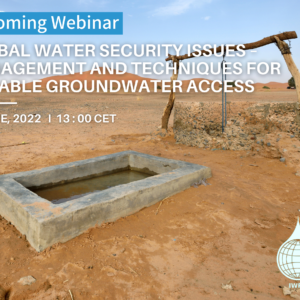
Last year, as part of IWRA’s 50th anniversary celebration, Water International published a special issue on the past, present and future of water.
The webinar, “Peering into the Crystal Ball: The Future of Water”, was an insightful event that will surely be appreciated for years into the future. The event included; Hussam Hussein, Cecilia Tortajada, Anita Milman, Salman MA Salman, Renée Martin-Nagle.
As Cecilia Tortajada discussed, the future will bring increasing demands on our water resources. Demand will rise in sectors such as irrigation, but also as a result of increased industry and energy use. She stressed the need to increase water efficiency and curb demand if we expect to match the increasingly competitive future. Addressing this scarcity can also be a means to confound complex questions around equality.
Anita Milman looked at the history of piped water and how that might play out in the future. As she noted, piped water is a historically new development, and has brought countless improvements to the daily lives of people around the world. But, in the future, these quotidian improvements will be challenged as ageing infrastructure and degraded water sources make it hard to maintain the status quo. In particular, this will challenge the management of these water resources, which depend on strong political institutions which shield these resources from issues such as rent-seeking and ongoing funding shortfalls.
Hussam Hussein looked at the dynamics between water and political demands, funding, and water research. For example, as new funding sources are opened in certain sectors, this can drive certain types of research. At the same time, water nationalism can be used by countries to stimulate certain parts of their water industry and to focus narratives including those around civil society or academia. He focused on the need to critically examine the context by which certain narratives are created and propagated.
Salman Salman looked at the ways that civil society groups like the International Water Resources Association with diverse backgrounds and interests can work together to help states address their water-related conflicts. As he noted, countries have relied in the past on NGOs, and so it makes sense that IWRA could help states to address points of conflict. As he shortly summarized, there are many present and potential conflicts including in the Grand Ethiopian Renaissance Dam where IWRA could play a role.
The panel discussed the ways that water’s future is still in doubt but will be shaped by many related factors, including climate change and population growth. But, these challenges can be addressed by building bridges between disciplines and groups.
This IWRA webinar “Peering into the Crystal Ball: The Future of Water” was an insightful event that will surely be appreciated for years into the future. The event included; Hussam Hussein, Cecilia Tortajada, Anita Milman, Salman MA Salman, Renée Martin-Nagle.
Presentations:
More presentations to come soon!




